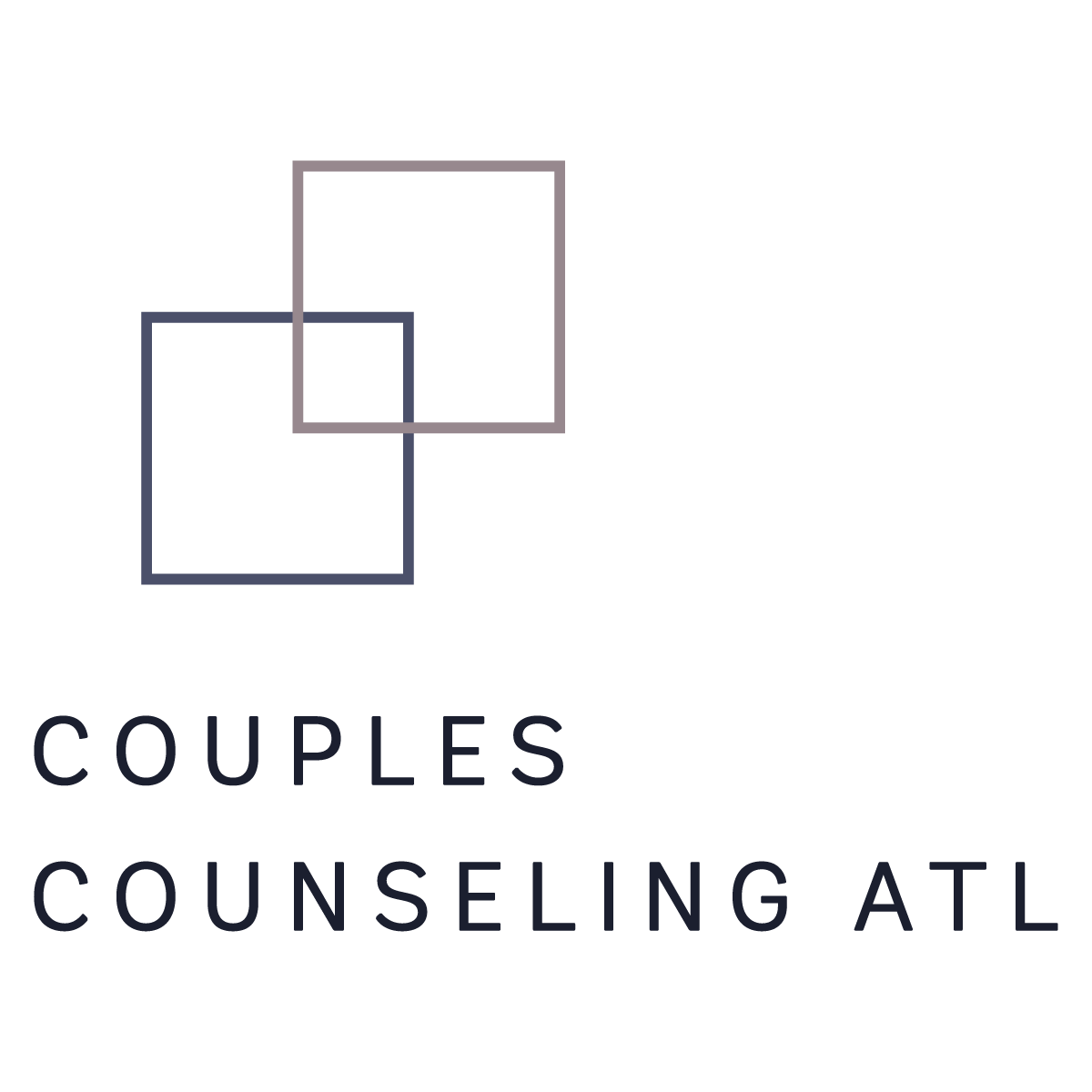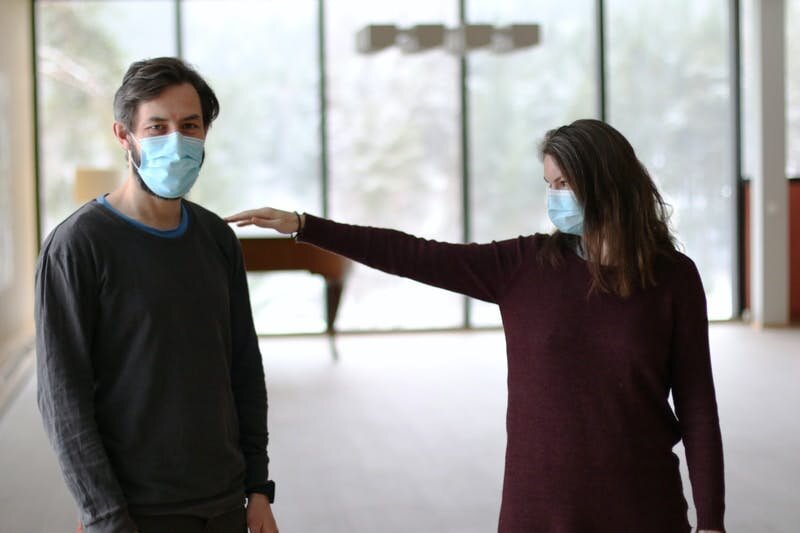Couples Therapists Have Been In Disaster Relationships, Too
Many relationships have struggled since the 2020 COVID pandemic.
This past Tuesday, our team of therapists and I spent the entire day at the Fernbank Museum of Natural History for our quarterly staff retreat. The goal: personal growth and bonding, and finally seeing one another IN PERSON! The day included some comedy improvisation with local therapist and improviser, Murray Dabbey, LCSW (so fun!), chair massages, a meditative walk in the forest, and some deep conversation about why we all became couples therapists. It was a fantastic day that renewed us and reconnected each one of us to our own personal "why" we keep working in this field.
The common thread: our family relationships and our romantic relationship histories impact us profoundly and are the reasons we joined the field. Each of us has been fortunate enough to have benefited from personal therapy and has since become highly motivated through our journeys to help others in their relationships. We laughed and shared some poignant moments, too. Reminded of our own humanity and foibles, we laughed at how we have all been in disaster relationships and let's just say that none of us have been blameless. ;)
I once heard Dr. John Gottman describe how couples therapists and our clients share in the same struggles in relationships: "We're all in the same soup." Humans are social creatures with the same hardware and have the same ways of attaching to other human beings. I read a great book recently called "What Happened to You?" by Oprah Winfrey, and the truth is, we all long to be part of loving, connected personal relationships and connected to broader communities, too. Every session with a couple highlights each client's unique challenges and stories and reminds us of the common human struggles we all share.
Many therapists once held the role of mediators, peacemakers, or "parentified" children in their families. All of us have had personal experiences with our painful breakups, separations, or divorces. Couples therapists don't have perfect relationships, but we are experts. , we have all been active participants in "disaster" and "master" relationships. According to Dr. John Gottman's research, "Disaster" couples were the least satisfied and most likely to break up or stay together miserably.
In contrast, "Master" couples were the most likely to stay together happily. Such changes have drastically improved the quality of my relationships, so when I help my clients using this method, it's not just an intellectual exercise! I know, and feel, on a personal level, how transformative it has been for me to incorporate the lessons from the Gottman Institute's research. I'm sure that my husband is thankful for what I've learned--I'm much less critical and defensive than I used to be!
We have all learned how our history -- especially what we experienced as children and what we witnessed in our parents -- always shows up somehow in our adult relationships. The Gottman term for negative sensitivities created by are past are "enduring vulnerabilities". Our most important relationships, both the joy and pain, seem to be the birthplace of many couples therapists' careers. It is the core of the more profound healing conversations. We have at one point felt inspired by their own mistakes and painful experiences to learn what is truly "healthy" in long-term relationships and how to create relationships that are worth it. Graduate school is where most therapists usually cut their teeth and begin to work on our issues. Thanks to the research by the Gottman Institute, you don't have to go to graduate school and can learn much more quickly than ever before how to create healthy relationships. I've spent my entire career studying what the research can teach us about healthy relationships, and I'd like to share some of the most profound findings with you today. And yes, couples therapists have been guilty of all the "Disaster" behaviors. At least, I'm willing to admit that I certainly have! There are many small but important differences between the “Master” vs. “Disaster” couples. They all start out in love, but their paths diverge. Early on, you can see some of the subtle differences even in the way they talk to one another.
4 Communication Sabotaging Behaviors Shared by All “Disaster” Couples
#1 Criticism
What it is:
Verbally attacking your partner’s personality or character, usually with the intent of making yourself “right” and your partner “wrong.”
What it looks like:
(Generalizations about who they are as a person) “You always/never…” or “you’re the type of person who …” or “why are you so ….”
#2 Contempt
What it is:
Verbally or non-verbally attacking your partner (especially who they are as a person) intending to insult them or psychologically abuse them. What it looks like:
-Insults and name-calling: “bitch, asshole, fat, stupid, ugly, disgusting, lazy….”
-Hostile humor, sarcasm, or mockery
-Body language & tone of voice: sneering, rolling your eyes, curling your upper lip
#3 Defensiveness:
What it is:
Seeing yourself as the victim, being on guard as though you have to ward off a perceived attack from your partner, to reverse the blame as being your partner’s fault.
What it looks like:
-Making excuses (example: some circumstances were allegedly beyond your control and “forced” you to act in a certain way; “It’s not my fault…”, “I didn’t…”)
-Cross-complaining: immediately meeting your partner’s complaint or criticism with a complaint of your own, ignoring what your partner just said (not listening, just waiting for them to stop talking so you can “counter” their point of view)
-Disagreeing and then cross-complaining: “That’s not true, you’re the one who …” “I did this because you did that….”
-Yes, but: You say you agree, but you don’t agree. Repeating yourself, while not paying attention to what the other person is saying, you reiterate what you say to try to “break” the other person.
-Whining: “It’s not fair” (again, taking on the “victim” role)
#4 Stonewalling:
What It is:
Withdrawing from the relationship to avoid conflict and discomfort or punish a partner. If you do this, you may think you are trying to be “neutral,” but stonewalling conveys disapproval, smugness, “icing someone out” with distance, separation, and disconnection:
What it looks like:
-Silent treatment
-Monosyllabic replies, “Mhmm” (followed by silence) “Yes. (followed by silence)”… “No. (followed by silence)
-Changing the subject (to avoid the difficult topic)
-Removing yourself physically (literally leaving the room to leave the conversation and not just for a “time out” to cool down, which is very healthy for a relationship when you say you need a break but come back to engage again… stonewalling is when you leave because don’t want to ever talk about it and you stop the conversation and never resume)
-Stone-faced silence (staring at someone without any expression, barely responding to them when they try to engage with you or ask you a question).
“Science says lasting relationships come down to—you guessed it—kindness and generosity.”*
Acting More Like a Disaster Couple Lately? You're Not Alone. Blame COVID (at least a little bit!)
Even with the COVID-19 pandemic hopefully (fingers crossed!) coming to an end thanks to vaccines and our public health heroes, couples are struggling now more than ever as we navigate unprecedented times and the aftermath of how this year has impacted them. Many couples who used to be in a good place, and were more "master" than "disaster" couples, have unfortunately devolved into addressing long-standing, worsening issues that they can no longer bear to ignore. Each day has brought a bizarre and challenging new reality. If you're a little more "harsh" than usual...snippy, irritable, quick to criticize--you're not a horrible partner, but you're probably at your limits with stress. It might be time to set "refresh" and reconnect in meaningful ways that remind both of you why you're in the relationship and what needs to change to get back on track.
In our offices, virtually and in person, we continue to support couples and help them get through some of the most challenging times in their lives. Many couples have reached a tipping point. After 18 months of quarantining together and feeling cabin fever, zoom school, job loss, family tragedies and death, social isolation, mental health, and substance abuse problems. The significant issues that they had either managed well or ignored thus far are boiling over. New problems have arisen that they never even anticipated. Couples are experiencing worsening fights with more fighting than usual, more hatred, tension, name-calling, and cold-war stalemates. We hear stories of merely tolerating each other for financial, childcare, or other reasons. Many clients hesitate to share that their secret desire is to break up, separate, or divorce. They feel trapped. They don't believe that they have a choice except to tolerate lockdown together despite a deteriorating relationship. But I want to offer some hope if you need it. Everyone can change and improve themselves and their relationships with intentional effort and expert guidance.
Our Relationship is Struggling! Help! What Else Can We Do to Become a "Master" Couple?
Read The "Seven Principles for Making Marriage Work" by Dr. John Gottman, explicitly paying attention to the theory that everyone is a philosopher. The research shows how master couples can navigate the ups and downs in life by maintaining a deep and abiding friendship.
Learn to identify and eliminate the "4 Horsemen" from the way you communicate with one another.
Let an expert guide you to building a better relationship. See a couples therapist at Couples Counseling ATL! Your first consultation session is free! Call 678-999-3390 or schedule online here.
Attend a couples workshop with us! Sit back for a fun and educational Saturday with your partner. Let me teach you what the most scientific, evidence-based researchers have to say on creating long-term marital success. I'm biased towards ours, "The Seven Principles Program," created by the Gottman Institute. A participant at one of our workshops shared recently how the workshop helped her and her husband prepares for the hard times during the pandemic that they didn't even know coming:
As a certified Gottman couples therapist, I've seen a lot of turmoil that can make a relationship unbearable, and I've been lucky to see many couples have the necessary but difficult conversations they need to have to move forward beyond the pain and misunderstanding. For people in severe trouble in their marriage, Gottman Method Couples therapy is still one of the best ways to reconnect, repair the damage, and rebuild a relationship. The workshop is an intensive, educational, and fun "booster shot" to help many couples who are already in couples therapy, who have considered couples therapy, or who want to prevent the need for couples therapy down the road. Don't wait another day to start your relationship off on the right foot!
Sign up for this workshop today!
*Atlantic News Source July 2021; https://www.theatlantic.com/health/archive/2014/06/happily-ever-after/372573/




